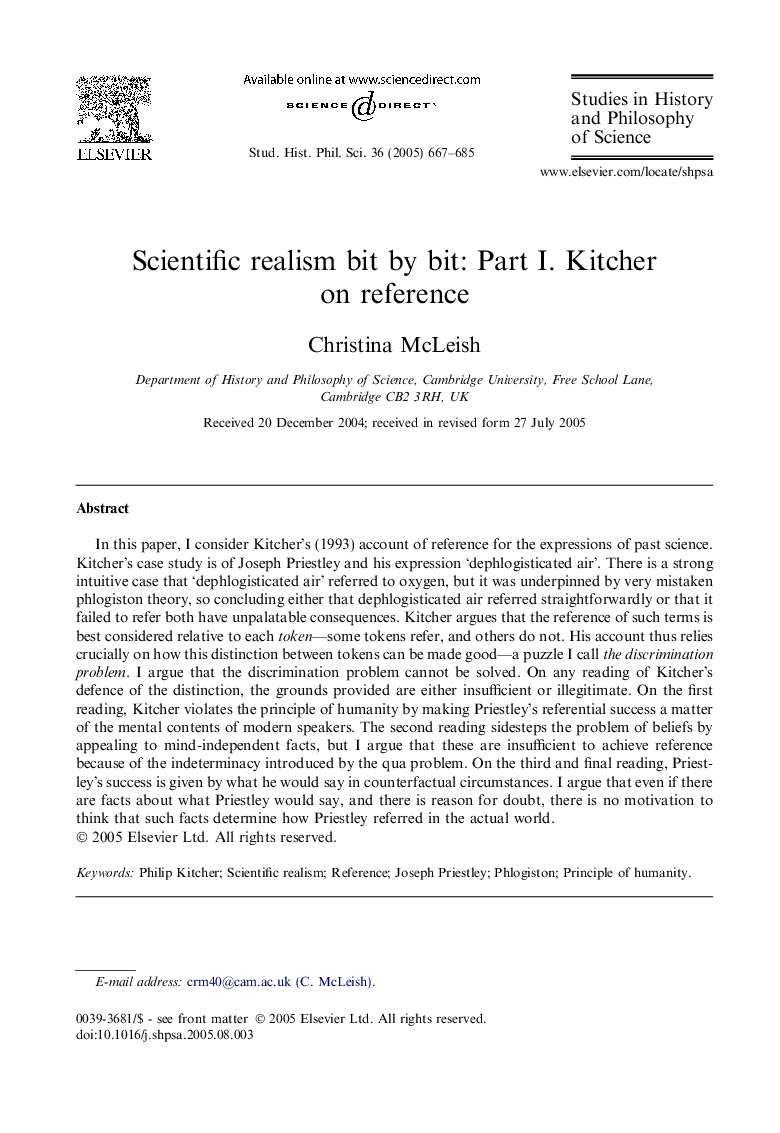| Article ID | Journal | Published Year | Pages | File Type |
|---|---|---|---|---|
| 9742580 | Studies in History and Philosophy of Science Part A | 2005 | 19 Pages |
Abstract
In this paper, I consider Kitcher's (1993) account of reference for the expressions of past science. Kitcher's case study is of Joseph Priestley and his expression 'dephlogisticated air'. There is a strong intuitive case that 'dephlogisticated air' referred to oxygen, but it was underpinned by very mistaken phlogiston theory, so concluding either that dephlogisticated air referred straightforwardly or that it failed to refer both have unpalatable consequences. Kitcher argues that the reference of such terms is best considered relative to each token-some tokens refer, and others do not. His account thus relies crucially on how this distinction between tokens can be made good-a puzzle I call the discrimination problem. I argue that the discrimination problem cannot be solved. On any reading of Kitcher's defence of the distinction, the grounds provided are either insufficient or illegitimate. On the first reading, Kitcher violates the principle of humanity by making Priestley's referential success a matter of the mental contents of modern speakers. The second reading sidesteps the problem of beliefs by appealing to mind-independent facts, but I argue that these are insufficient to achieve reference because of the indeterminacy introduced by the qua problem. On the third and final reading, Priestley's success is given by what he would say in counterfactual circumstances. I argue that even if there are facts about what Priestley would say, and there is reason for doubt, there is no motivation to think that such facts determine how Priestley referred in the actual world.
Related Topics
Social Sciences and Humanities
Arts and Humanities
History
Authors
Christina McLeish,
